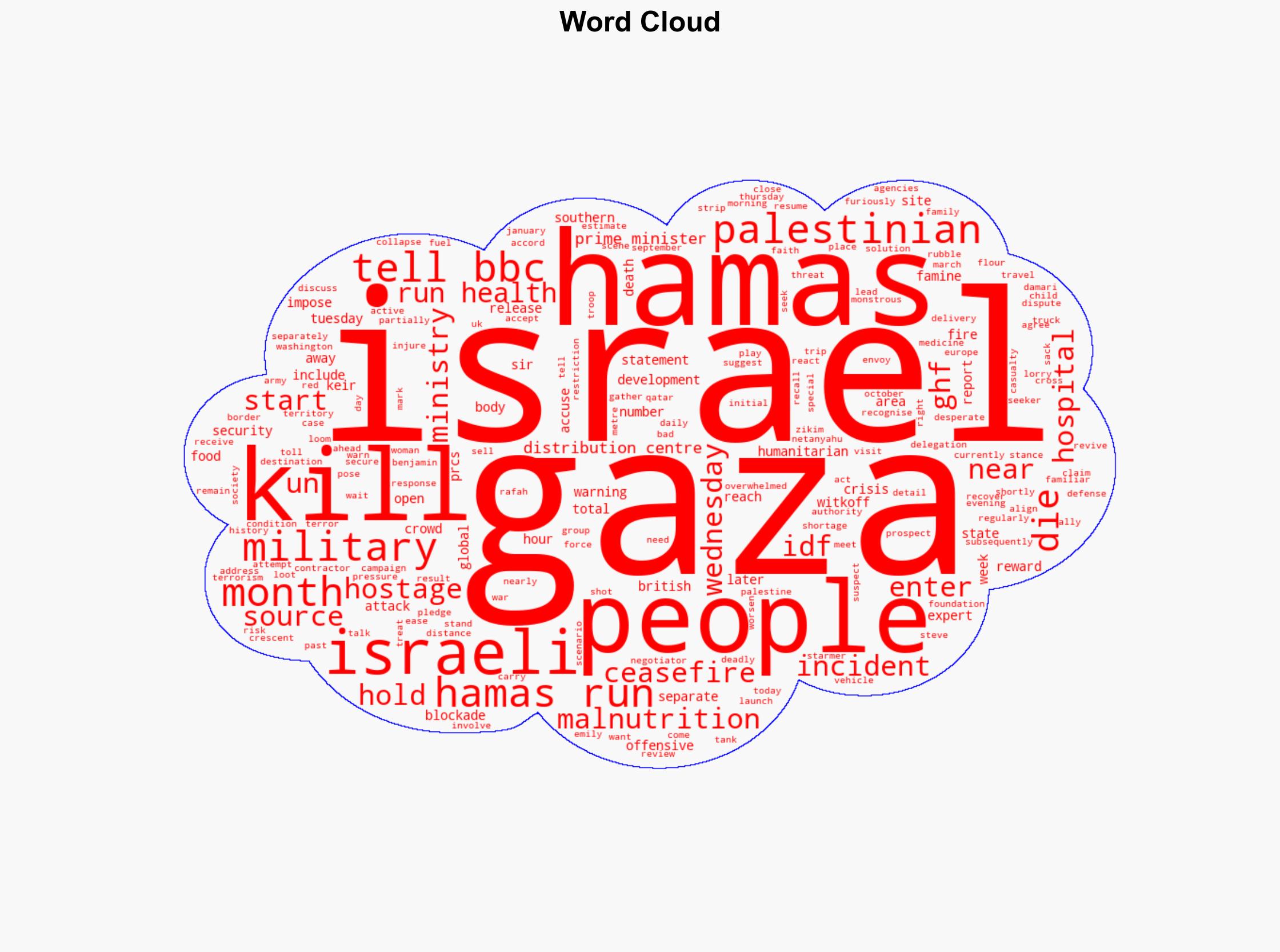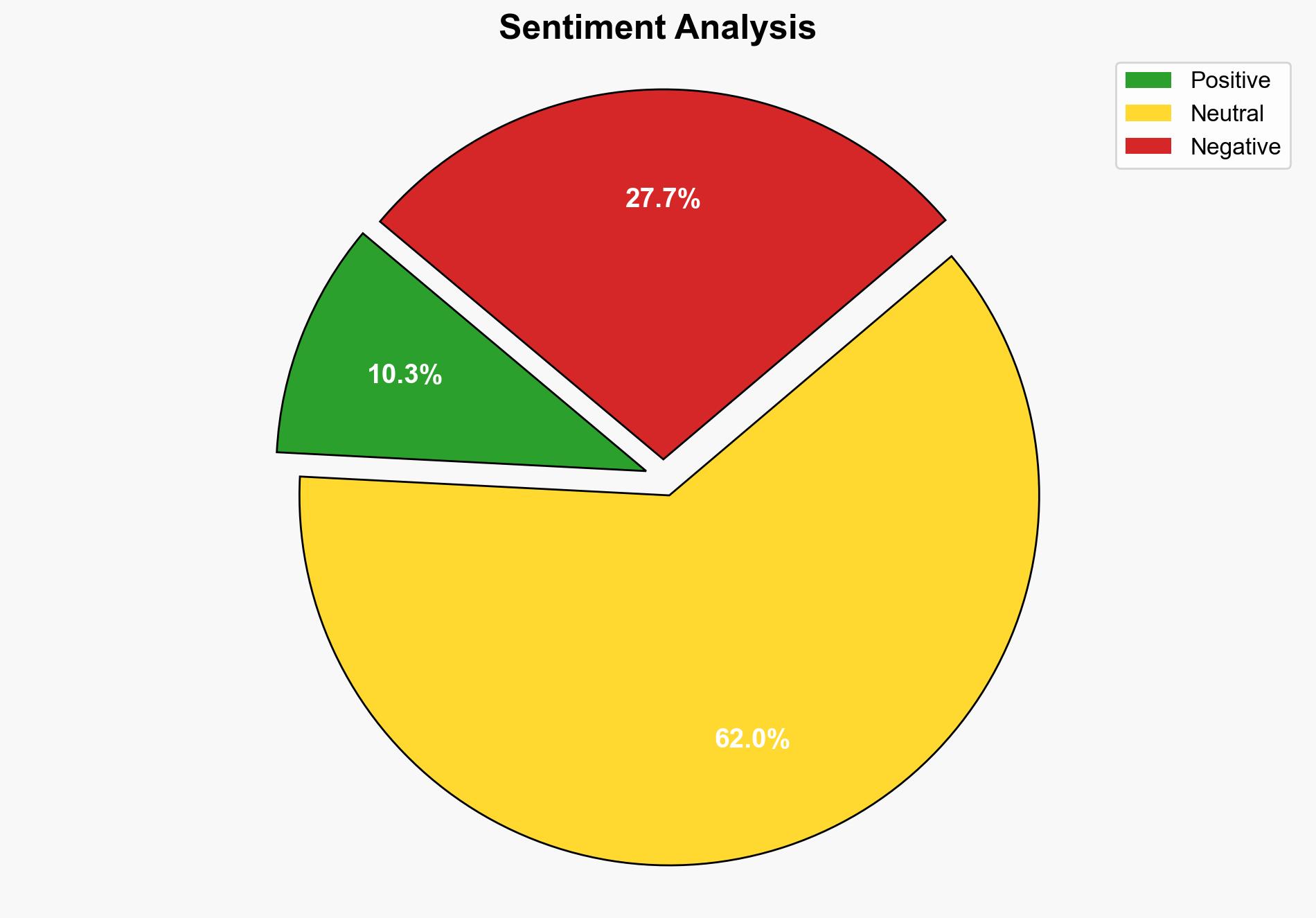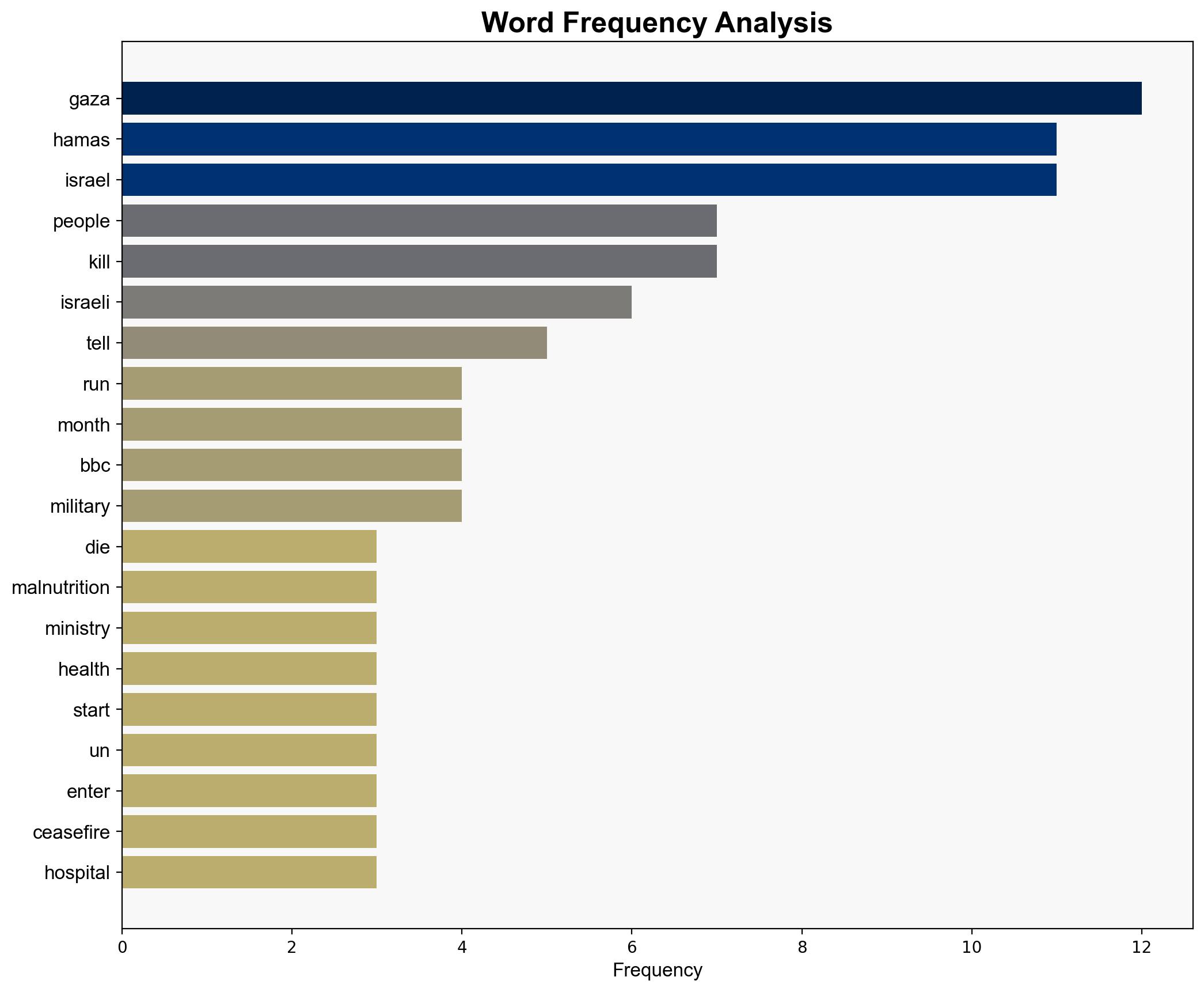Seven more die from malnutrition in Gaza Hamas-run ministry says – BBC News
Published on: 2025-07-30
Intelligence Report: Seven more die from malnutrition in Gaza Hamas-run ministry says – BBC News
1. BLUF (Bottom Line Up Front)
The humanitarian crisis in Gaza is escalating, with malnutrition deaths rising amid ongoing conflict. The most supported hypothesis is that the blockade and military actions are exacerbating the humanitarian situation, leading to increased mortality. Confidence level: Moderate. Recommended action: Engage in diplomatic efforts to facilitate humanitarian aid and negotiate ceasefire terms.
2. Competing Hypotheses
1. **Hypothesis A**: The malnutrition deaths are primarily due to the Israeli blockade and military actions, which have severely restricted access to food, medicine, and humanitarian aid.
2. **Hypothesis B**: The malnutrition deaths are being exaggerated or manipulated by Hamas for political leverage, aiming to garner international sympathy and pressure Israel to lift the blockade.
Using ACH 2.0, Hypothesis A is better supported by the consistent reports from multiple international organizations and the UN, highlighting the severe restrictions on essential supplies. Hypothesis B, while plausible, lacks substantial corroborative evidence and relies heavily on the assumption of intentional manipulation by Hamas.
3. Key Assumptions and Red Flags
– **Assumptions**: Hypothesis A assumes that the blockade is the primary cause of the humanitarian crisis, while Hypothesis B assumes intentional exaggeration by Hamas.
– **Red Flags**: The potential for biased reporting from both sides, as well as the lack of independent verification of casualty figures.
– **Blind Spots**: Limited access to Gaza for independent observers, which hampers objective assessment of the situation.
4. Implications and Strategic Risks
The continuation of the blockade and military actions could lead to further deterioration of the humanitarian situation, potentially escalating into a broader regional conflict. The psychological impact on the population may increase support for extremist factions. Economically, prolonged instability could disrupt regional trade and investment.
5. Recommendations and Outlook
- **Immediate Action**: Facilitate diplomatic channels to negotiate a temporary ceasefire and allow humanitarian aid to enter Gaza.
- **Mid-term Strategy**: Engage with international partners to establish a monitoring mechanism ensuring aid reaches those in need.
- **Scenario Projections**:
– **Best Case**: Ceasefire agreement leads to sustained humanitarian access and reduction in casualties.
– **Worst Case**: Escalation of military actions results in a full-scale humanitarian disaster.
– **Most Likely**: Continued sporadic violence with periodic aid access, maintaining a fragile status quo.
6. Key Individuals and Entities
– Steve Witkoff: UN Special Envoy involved in crisis discussions.
– Benjamin Netanyahu: Israeli Prime Minister, critical of international positions on the conflict.
– Keir Starmer: British Prime Minister, involved in diplomatic discourse regarding the conflict.
7. Thematic Tags
national security threats, humanitarian crisis, regional conflict, international diplomacy





